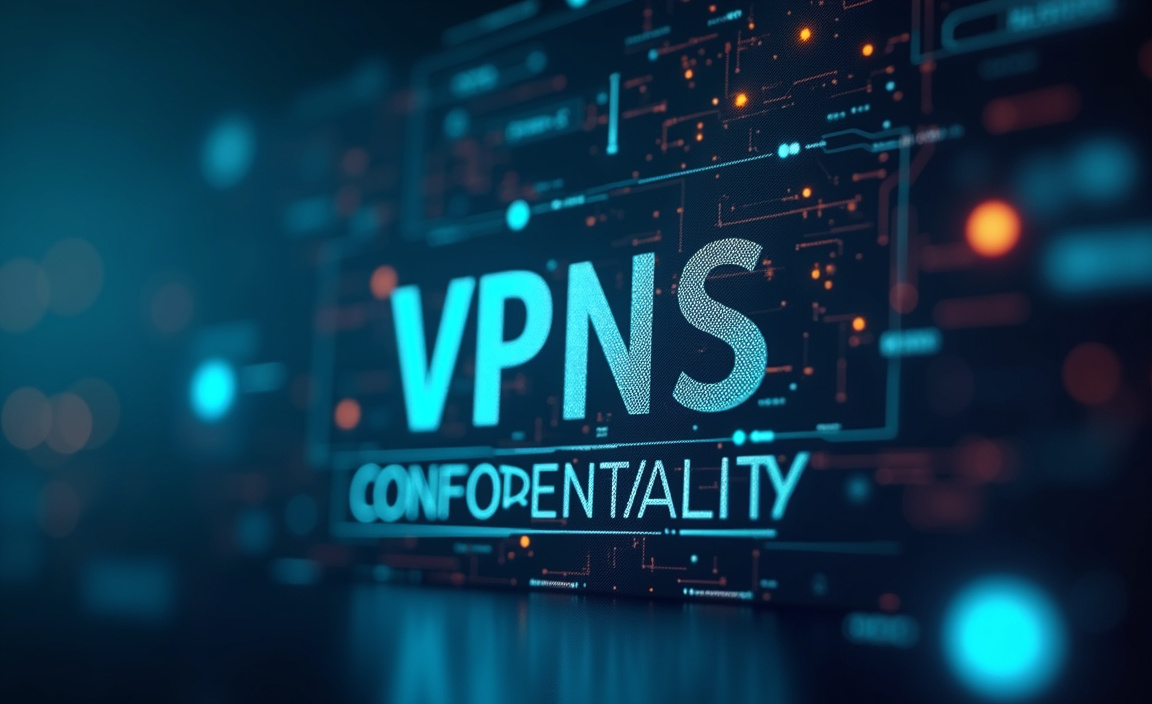VPNs for Clinical Trials: Ensuring Data Confidentiality

Table of Contents
VPNs for Clinical Trials: Ensuring Data Confidentiality
The realm of clinical trials, a cornerstone of medical advancement, relies heavily on the generation, collection, and analysis of sensitive data. This encompasses patient medical histories, genetic information, treatment responses, and a wealth of other private details. The integrity of these trials, and indeed the future of medical breakthroughs, hinges on maintaining the strictest standards of data confidentiality.
A breach in this confidentiality can have devastating consequences, ranging from compromising patient privacy and undermining trust in research institutions to causing significant financial losses and legal ramifications. This article delves into the crucial role that Virtual Private Networks (VPNs) play in safeguarding data confidentiality within clinical trials, exploring how these technologies contribute to upholding research integrity and ensuring robust patient protection. We will examine the specific challenges faced by clinical trial stakeholders in securing sensitive information, outline the key features and functionalities of VPNs that address these challenges, and discuss best practices for implementing and managing VPNs in clinical trial environments.
Clinical trials, by their very nature, involve a complex network of researchers, healthcare providers, data analysts, and regulatory bodies, often dispersed across geographical locations. This intricate network necessitates seamless data sharing and collaboration, but also presents numerous opportunities for security breaches. Data may be transmitted over public networks, stored on vulnerable devices, or accessed by unauthorized individuals, creating potential entry points for cyberattacks and data leaks.
Consider the scenario where clinical trial data is being transferred from a remote research site to a central data repository. Without proper security measures in place, this data transmission could be intercepted by malicious actors, exposing sensitive patient information. The vulnerabilities are not limited to external threats; insider threats, whether intentional or unintentional, pose a significant risk to data confidentiality.
A disgruntled employee with access to patient data could deliberately leak it, or a researcher might inadvertently expose sensitive information through a phishing attack or by using an unsecured device. The consequences of such breaches can be devastating, eroding patient trust, jeopardizing the validity of the clinical trial, and leading to regulatory penalties. Furthermore, the increasing use of electronic health records (EHRs) and other digital tools in clinical trials has created new avenues for data breaches.
EHRs contain vast amounts of sensitive patient information, making them a prime target for hackers. A successful attack on an EHR system could compromise the data of thousands of clinical trial participants, causing irreparable harm. The regulatory landscape surrounding clinical trial data is becoming increasingly stringent.
Regulations such as HIPAA in the United States and GDPR in Europe impose strict requirements for protecting patient data and mandate significant penalties for non-compliance. Failure to adequately secure clinical trial data can result in hefty fines, legal action, and reputational damage, severely impacting the ability of research institutions to conduct clinical trials and advance medical knowledge.. In this climate, the role of 'clinical trial VPN' solutions becomes critical.
Given the myriad risks associated with data breaches in clinical trials, robust security measures are essential. A Virtual Private Network (VPN) offers a powerful solution for protecting data confidentiality by creating a secure, encrypted tunnel for data transmission. At its core, a VPN functions by establishing an encrypted connection between a user's device and a remote server operated by the VPN provider.
All data transmitted between the device and the server is encrypted, rendering it unreadable to anyone who might intercept the traffic. This is particularly crucial when transmitting sensitive clinical trial data over public networks, such as Wi-Fi hotspots in coffee shops or airports, which are notoriously insecure. A 'clinical trial VPN' encrypts the data, effectively shielding it from eavesdropping and preventing unauthorized access.
Beyond encryption, a VPN also masks the user's IP address, providing an additional layer of anonymity. This is important because a user's IP address can be used to track their location and online activity. By hiding the IP address, a VPN makes it more difficult for malicious actors to identify and target researchers or clinical trial sites.
The masking of the IP address also helps protect against distributed denial-of-service (DDoS) attacks, which can disrupt clinical trial operations by overwhelming networks with malicious traffic. The 'data confidentiality' achieved through VPNs is multifaceted. By encrypting data in transit, the VPN protects against interception and eavesdropping.
By masking the IP address, the VPN enhances anonymity and protects against tracking and targeted attacks. These combined features make VPNs a powerful tool for securing clinical trial data. However, not all VPNs are created equal.
It is essential to choose a VPN service provider that has a strong reputation for security and reliability. The VPN provider should use robust encryption protocols, such as AES-256, and should have a strict no-logs policy, meaning that they do not track or store user activity. The location of the VPN provider is also an important consideration.
VPN providers located in countries with strong privacy laws are generally more reliable than those located in countries with lax regulations. Furthermore, the VPN provider should have a proven track record of protecting user data and should be transparent about their security practices. It should be easy to review their policies.
The implementation of a 'VPN for trials' must be tailored to the specific needs of the clinical trial environment. This includes configuring the VPN to work seamlessly with existing IT infrastructure, such as electronic data capture (EDC) systems and clinical trial management systems (CTMS). The VPN should also be easy to use and manage, so that researchers and staff can easily connect to the VPN and protect their data.
The VPN should also support multi-factor authentication, adding an extra layer of security to user accounts. Regular security audits should be conducted to ensure that the VPN is properly configured and that there are no vulnerabilities that could be exploited. In addition to technical measures, it is also important to provide training to researchers and staff on VPN usage and security best practices.
This training should cover topics such as password management, phishing awareness, and reporting procedures for suspected security incidents. This integrated approach helps to uphold 'research integrity' while also ensuring complete 'patient protection'.
To effectively deploy a VPN within the clinical trial ecosystem, a multi-faceted approach extending beyond just technological implementation is crucial. This approach should encompass careful selection of a VPN service, rigorous configuration to meet specific trial needs, and the establishment of comprehensive policies alongside continuous monitoring and adaptation. Selection of the 'clinical trial VPN' provider is paramount.
The chosen provider should not only offer robust encryption and a strict no-logs policy, but also exhibit a proven track record of reliability and a commitment to regulatory compliance (HIPAA, GDPR, etc.). Independent security audits and certifications should be readily available for review, confirming the provider's adherence to industry best practices. Factors such as server locations are also critical; strategically positioning servers in regions relevant to the clinical trial can optimize performance and minimize latency, which is especially crucial for real-time data interactions or telemedicine applications.
Furthermore, the provider's terms of service must be thoroughly scrutinized to ensure they align with the ethical and legal obligations of clinical research, particularly regarding data privacy and confidentiality. The service should explicitly state its commitment to protecting patient data and its willingness to cooperate with regulatory investigations, if necessary, while maintaining patient anonymity to the fullest extent possible. The "devil is in the details" of these agreements.
Once a suitable provider is selected, the VPN must be configured to the unique demands of the 'VPN for trials' environment. Standard configurations may not suffice; customization is often necessary to optimize security and performance Specific protocols may need to be enabled or disabled depending on the data sensitivity and connection requirements. For instance, split tunneling, which allows certain traffic to bypass the VPN, may be appropriate for non-sensitive applications but should be strictly prohibited for any data related to the clinical trial.
Strong encryption protocols, such as AES-256, should be enforced across all connections, and multi-factor authentication should be implemented to prevent unauthorized access to the VPN itself. Integration with existing IT infrastructure is also critical. The VPN should seamlessly interoperate with Electronic Data Capture (EDC) systems, Clinical Trial Management Systems (CTMS), and other relevant applications.
This integration should be thoroughly tested to ensure that the VPN does not introduce compatibility issues or negatively impact performance. Moreover, the VPN should be configured to automatically connect whenever a user accesses sensitive data, minimizing the risk of accidental exposure. However, technology alone is insufficient.
A well-defined VPN usage policy is essential to guide researchers and staff on appropriate use. This policy should clearly articulate acceptable use cases, prohibited activities, and security protocols. It should emphasize the importance of protecting patient data and the consequences of violating the policy.
Training programs are equally critical. All personnel involved in the clinical trial should receive comprehensive training on VPN usage, security best practices, and the importance of adhering to the policy. This training should cover topics such as password hygiene, recognizing phishing attempts, and reporting suspected security incidents.
Regular refresher courses should be conducted to reinforce these concepts and keep users up-to-date on the latest threats. Furthermore, ongoing monitoring and adaptation are essential. The VPN infrastructure should be continuously monitored for performance issues, security breaches, and policy violations.
Log data should be regularly reviewed to identify suspicious activity. As new threats emerge and the clinical trial evolves, the VPN configuration and policies should be adapted accordingly. This ongoing vigilance is crucial for maintaining the security and integrity of clinical trial data throughout the duration of the study therefore greatly boosting 'research integrity'.
The practical application of a 'clinical trial VPN' extends across various stages and specific operational requirements within the clinical trial process. Consider the scenario of a multi-center clinical trial involving numerous research sites collaborating across different geographical locations. Each site handles sensitive patient data, from initial screening and enrollment to ongoing monitoring and data collection.
A properly configured VPN can establish secure connections between each site and the central data repository, safeguarding data transmission from interception. This is particularly crucial when data is being transmitted over public or less secure networks. The VPN encrypts the data, ensuring that even if intercepted, it remains unreadable to unauthorized parties.
Additionally, the VPN masks the IP addresses of the research sites, enhancing anonymity and protecting against targeted attacks. Another critical application arises during remote data entry. Clinical Research Associates (CRAs) often visit trial sites to collect patient information.
A VPN installed on their laptops or mobile devices provides a secure connection back to the research institution's network, preventing data breaches when using public Wi-Fi or other potentially insecure networks. The 'data confidentiality' is maintained even when CRAs are working remotely, ensuring compliance with data protection regulations. Similarly, when clinical trial data is shared with external collaborators, such as Contract Research Organizations (CROs) or regulatory agencies, a VPN can establish a secure tunnel between the respective networks.
This ensures that only authorized personnel can access the data, and that it is protected from interception during transmission. Access controls within the VPN can be further configured to restrict access to specific data sets or applications, limiting the potential impact of a security breach. Moreover, with the increasing adoption of telemedicine in clinical trials, VPNs play a vital role in securing remote patient consultations and data transmissions.
Telemedicine platforms often involve the exchange of sensitive medical information, including video recordings, diagnostic images, and patient records. A VPN integrated into the telemedicine platform encrypts this data, protecting patient privacy and ensuring compliance with HIPAA and other relevant regulations. Consider a clinical trial evaluating the effectiveness of a new remote monitoring device for patients with chronic heart failure.
The device collects vital signs data and transmits it to a central monitoring station. A VPN secures this data transmission, protecting patient privacy and ensuring the integrity of the data. The integration of the 'VPN for trials' with existing IT infrastructure requires careful planning and execution.
The VPN should be compatible with all essential operating systems and devices used by researchers and staff. It should also be seamlessly integrated with existing security systems, such as firewalls and intrusion detection systems, to provide a holistic security posture. Regular performance testing should be conducted to ensure that the VPN does not negatively impact network speed or application performance.
The infrastructure should be scalable to accommodate the growing data volumes and user base as the 'patient protection' protocols increase over time. Regular patching and updates of both the VPN client and server software are essential to address any security vulnerabilities. Automated patching mechanisms can help ensure that systems are kept up-to-date without requiring manual intervention.
Finally, continuous monitoring of the VPN infrastructure is crucial for detecting and responding to security incidents. Security Information and Event Management (SIEM) systems can be used to collect and analyze log data from the VPN, allowing administrators to identify suspicious activity and take appropriate action. It's important to realize that a VPN is only one component of a broader security strategy, it is essential to complement it with other security measures, such as data encryption, access control and security awareness training.
The trajectory of 'clinical trial VPN' usage is intricately linked to the accelerating pace of technological advancements and the ever-evolving landscape of cybersecurity threats. As cloud computing increasingly becomes the cornerstone of clinical research, VPNs will play an even more critical role in securing data residing in cloud environments. Cloud-based VPN solutions offer several compelling advantages, including scalability, flexibility, and cost-effectiveness, enabling research institutions to readily adapt to fluctuating data volumes and user demands.
However, securing cloud-based clinical trial data requires careful consideration of several factors. The VPN provider must have robust security controls in place to protect data stored on their servers. These controls should include physical security measures, such as secure data centers and access controls, as well as logical security measures, such as encryption, intrusion detection systems, and regular security audits.
Furthermore, the VPN should be configured to comply with cloud security best practices, such as implementing strong authentication, segmenting networks, and regularly backing up data to protect 'research integrity'. As well, the rise of edge computing, where data processing is performed closer to the source, presents both opportunities and challenges for clinical trial security. Edge computing can reduce latency and improve performance, but it also introduces new security risks.
VPNs can be used to secure data transmitted between edge devices and central data repositories. This is particularly important for clinical trials involving wearable sensors or remote monitoring devices that collect data in real-time. The emergence of quantum computing poses a long-term threat to existing encryption algorithms.
Quantum computers have the potential to break many of the encryption algorithms currently used to secure VPN connections. While quantum computers are not yet a practical threat, research institutions should begin planning for the transition to quantum-resistant encryption algorithms. This involves staying informed about the latest developments in quantum cryptography and working with VPN providers to implement quantum-resistant encryption protocols when they become available.
Concurrently, the evolving regulatory landscape is also shaping the future of VPN usage in clinical trials. Regulators are increasingly scrutinizing the security practices of research institutions and demanding greater accountability for protecting patient data. Compliance with regulations such as HIPAA and GDPR requires a comprehensive approach to data security, including the use of VPNs to encrypt data in transit and protect against unauthorized access.
Research institutions must stay up-to-date on the latest regulatory requirements and ensure that their VPN usage policies and practices are compliant to ensure complete 'patient protection'. Also, Artificial Intelligence (AI) and Machine Learning (ML) will play an increasingly important role in cybersecurity, AI-powered security systems can automatically detect and respond to security threats, improving the effectiveness of VPNs and other security tools to defend against rising cyber attacks. However, AI can also be used by attackers to develop more sophisticated attacks.
Research institutions must stay ahead of the curve by investing in AI-powered security solutions and training their staff to recognize and respond to AI-driven attacks. Furthermore, the human element remains a critical factor in securing clinical trial data. Even the most sophisticated VPN technology is only as effective as the people who use it.
Training and education are essential for ensuring that researchers and staff understand the importance of data security and are equipped to use VPNs and other security tools effectively. Regular security awareness training should cover topics such as password management, phishing awareness, and social engineering attacks. The future of 'data confidentiality' in clinical trials is thus contingent on a multifaceted approach that addresses both technological advancements and human behavior.
Stay Updated
Get the latest VPN news, tips, and exclusive deals to your inbox.




